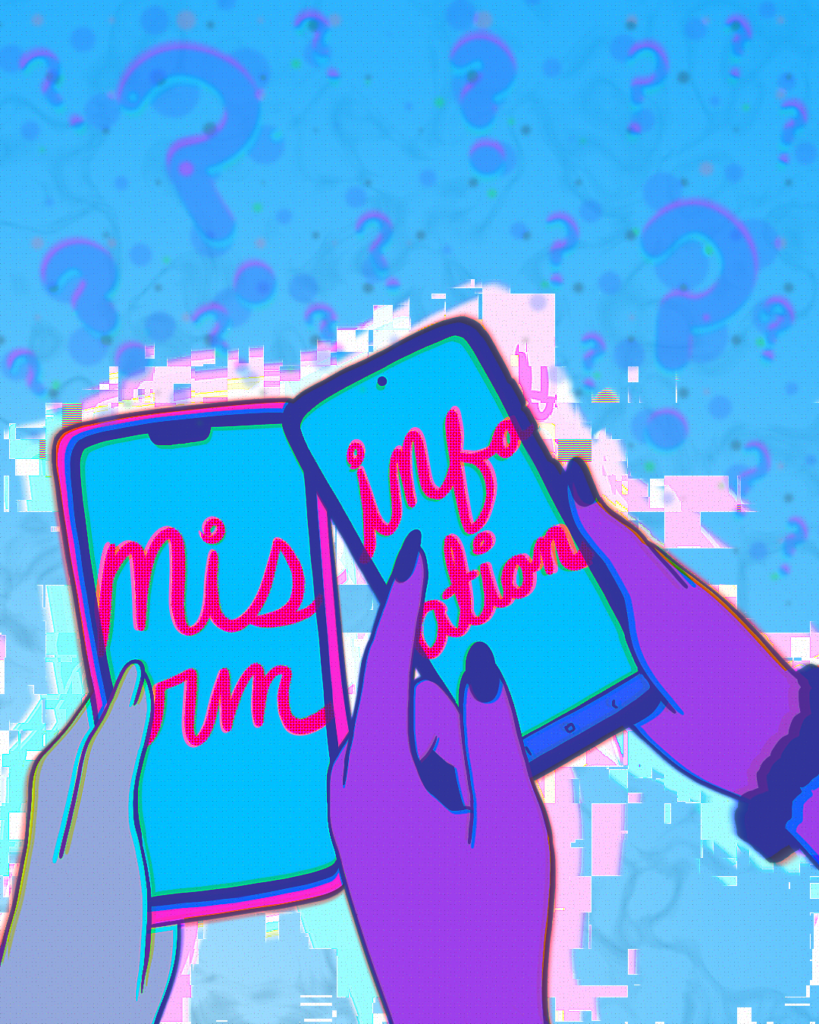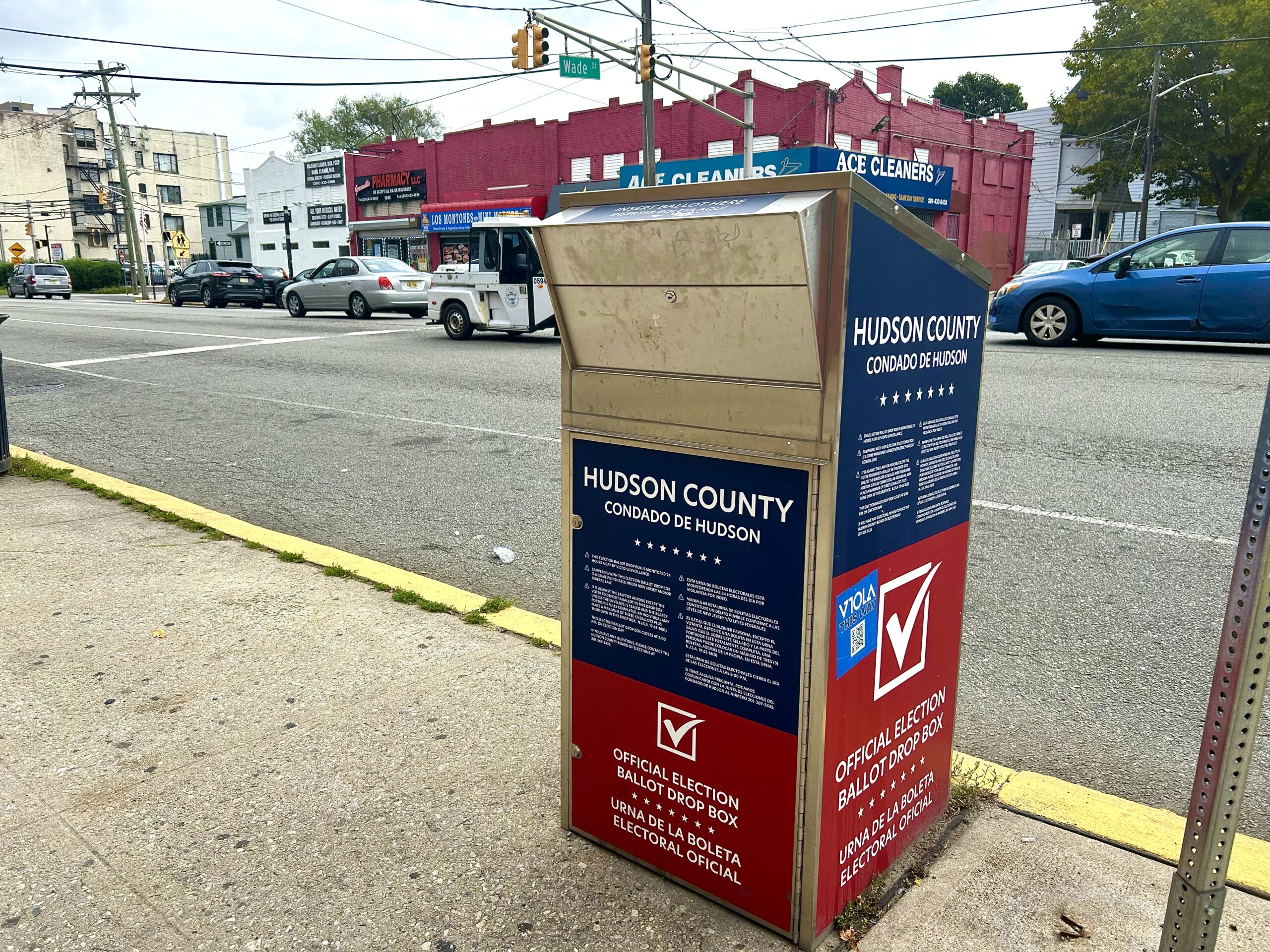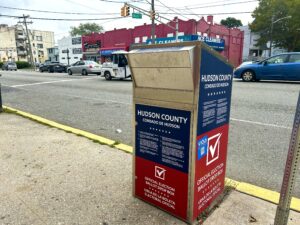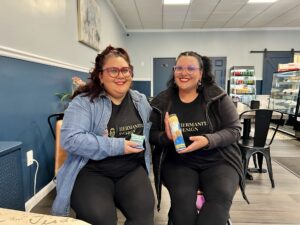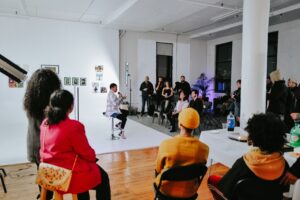Illustration by staff illustrator Sakura Siegel.
Misinformation is all over the internet and without realizing, it’s quite easy to fall victim to.
“It’s so prevalent that it’s hard sometimes to even catch it, in my experience,” Eve Johnson, a member of Facebook page “Bayonne Talks,” commented to Slice of Culture. “You really have to be a critical thinker.”
Misinformation and disinformation is presented to the public in many different ways and include topics like healthcare, natural disasters and especially elections.
According to associate professor emeritus of political science at Saint Peter’s University, Alain L. Sanders, false information is spread during elections to take advantage of the gullibility of people and their lack of factual information when it comes to public policies.
“Most people do not have the time, expertise, or inclination to spend hours studying the intricacies of public policies or the consequences of public policies,” Sanders told Slice of Culture. “They typically rely on their general political inclinations or world view, their general knowledge, as well as their personal experiences.”
According to CUNY’s Graduate School of Journalism, misinformation is the sharing of inaccurate or misleading information in an unintentional way. Disinformation, on the other hand, is defined as the deliberate dissemination of fake or inaccurate information in order to discredit a person or organization.
“Election misinformation, which usually is in the form of exaggeration, is common in the social media postings of many candidates and of many PACs and interest groups,” stated Sanders.
Protect Democracy published a white paper titled ‘Electoral Confusion – Contending with Structural Disinformation in Communities of Color’ which highlighted the social and cultural implications of the spread of misinformation and disinformation through interviews with community leaders, activists, journalists and researchers that are in close contact with communities of color in the states of Arizona, Georgia and Wisconsin.
Their interviewees raised the following concerns:
- the lack of quality, accessible voting information
- resources in languages other than English
- the demoralization of voters across all communities studied by general concerns about U.S. politics and specifically by structural barriers to participation
- critical voting information, including registration requirements, basic electoral processes, and poll locations, is often unavailable, and the information that is available is sometimes deliberately false, misleading, or incomplete
“These official information shortcomings are even more profound for those who speak languages other than English. This problem is particularly acute among Native voters and those from smaller immigrant communities, especially among older members of those communities,” stated the research paper.
In addition, interviewees from Hispanic and Asian American groups found that WhatsApp was a major source of the spread of misinformation and disinformation “because it’s encrypted design makes it difficult to detect propaganda and because its use for communal information-sharing allows false information to propagate among trusted networks.”
“The deliberate and systematic spread of disinformation has eroded Americans’ trust in our institutions. It cannot be allowed to persist. Now more than ever we must unite around common facts and common truth,” U.S. Congressman Bill Pascrell, Jr., who represents part of Hudson County in the Congress, told Slice of Culture through Press Secretary Stephen C. Tighe.
We created polls on our Instagram story, asking our readers if they’d ever encountered misinformation on the Internet, of which 100% of respondents answered ‘Yes.’ The next poll posed the question, ‘If you answered yes, where did you see the misinformation?’ Twitter and Facebook received equal responses at 43% while WhatsApp trailed at 14%.

The New York Times reported The Integrity Institute’s analysis of Twitter’s contribution to the spread of misinformation and found that the platform “has what the institute called the great misinformation amplification factor, in large part because of its feature allowing people to share, or ‘retweet,’ posts easily.”
The article stated that TikTok had around the same spread of misinformation videos as Facebook, but that Instagram had the lowest rate of spread than all other social media platforms analyzed.
The University of Colorado Boulder conducted a study that found “Facebook is a more fertile breeding ground for fake news than Twitter, and those on the far ends of the liberal-conservative spectrum are most likely to share it.”
The Facebook sample found that those self-identified as extremely conservative accounted for the most fake news shares, at 26%, and in the Twitter sample 32%.
“Here in North Jersey and across America, Republican politicians continue to spread dangerous lies about our elections, COVID-19, and more. Let me be clear: these forces are seeking to divide us and burn down American democracy so they can rule over the ashes,” stated Pascrell.
“We must all stand together united against these dangerous lies and in support of common truth.”
For more information on who you will see on Nov. 8, Hudson County’s Election Day, visit us on Instagram @sliceofculture.

